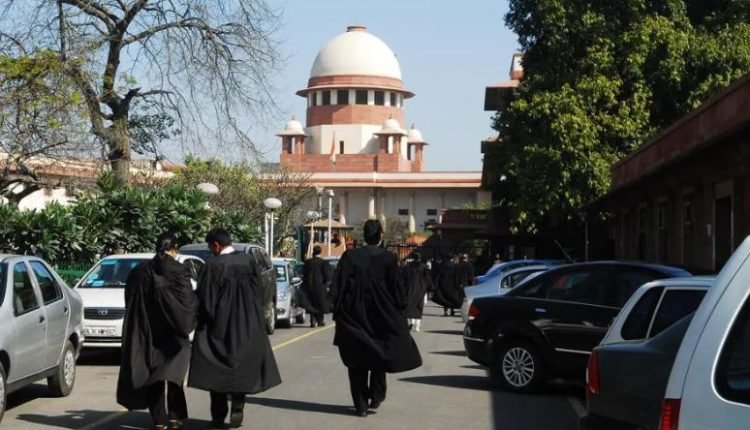22-08-2023 : The Supreme Court has categorically rejected the argument that Article 370 of the Constitution ceased to be effective following the conclusion of the term of the constituent assembly of Jammu and Kashmir in 1957, subsequent to the framing of the state’s Constitution. The apex court’s response came during a hearing by a five-judge bench led by Chief Justice DY Chandrachud. The contention was raised by senior advocate Dinesh Dwivedi, representing intervenor Prem Shankar Jha, who challenged the August 5, 2019 decision by the Central Government to abrogate Article 370.
Prem Shankar Jha, the intervenor, questioned whether Article 370 continued to exist or lost its validity once the Constitution of Jammu and Kashmir was enacted on January 26, 1957, and the state’s constituent assembly was dissolved. The court was then prompted to delve into the legality of this argument.
The bench, consisting of Justices Sanjay Kishan Kaul, Sanjiv Khanna, BR Gavai, and Surya Kant, urged Dwivedi to examine the Indian constituent assembly debates and the intentions behind the formulation of Article 370. Dwivedi expressed a differing perspective, stating, “My argument is that nothing survives. All the powers conferred under Article 370 cease to operate once the Constitution of Jammu and Kashmir was enacted.”
Chief Justice DY Chandrachud raised a pertinent concern regarding the potential outcome of this argument. He remarked, “The consequence of the argument will be that the Constitution of India and its application to Jammu and Kashmir would ‘stand frozen as of January 26, 1957’.”
The bench also emphasized that Dwivedi’s submission was veering towards interpreting Article 370 in a manner not originally intended. Justice Kaul highlighted the need to examine the constituent assembly debates that surrounded the framing of Article 370.
Dwivedi argued that when Article 370 was being framed, Jammu and Kashmir was facing turmoil, and the only legal entity was the state government. Consequently, the provision necessitated “consultation and concurrence” on matters concerning the Union and concurrent list, as well as those outside the purview of the Instrument of Accession.
Dwivedi further contended that Article 370 was intended as a temporary provision, given the imminent establishment of the constituent assembly. He asserted that this provision was set to be dissolved upon the assembly’s creation.
However, the bench pointed out that this stance contradicted arguments made by others who opposed the abrogation, asserting that Article 370 had obtained permanent status after the conclusion of the state’s constituent assembly.
The court also questioned whether a speech delivered by a constituent assembly member could be considered as reflective of India’s commitment to Jammu and Kashmir. The bench acknowledged that such interpretation could significantly impact the understanding of the Constitution.
The hearing remained inconclusive and is set to continue. Multiple petitions challenging the abrogation of Article 370 and the Jammu and Kashmir Reorganisation Act, 2019, which resulted in the division of the erstwhile state into two union territories – Jammu and Kashmir, and Ladakh – have been referred to a Constitution bench since 2019.




